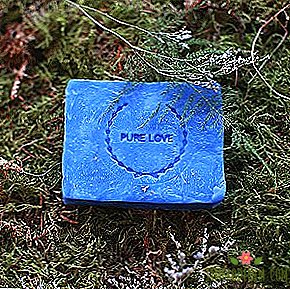"Okay, I'm gay": Azerbaijani LGBT activist about how he survived from the country
Last September, there were reports in the pressthat the Azerbaijani police conducted mass arrests of gay and transgender people in the center of Baku. According to the official version, LGBT people were detained for sex work: "The raid was undertaken against people who engaged in prostitution. Among those working on the street, many are carriers of sexually transmitted diseases," the press service of the Ministry of Internal Affairs of Azerbaijan explained. Lawyers for the detainees and human rights activists argued that it was a raid on gay and transgender men and women, some of whom worked as stylists or hairdressers, among them were a judo teacher, a cook and a seller of cakes. According to the detainees, many of them were held in areas from several hours to two weeks, some were stripped naked, beaten with sticks, and tortured with electric shock.
Creator of the Azerbaijani LGBT organization Nefes, Javid Nabiyev, was one of those who actively helped spread information about the arrests. Back in 2014, he fled the country, explaining that by harassment by the police and threats from local residents. We publish his story, in which he describes the position of LGBT people in the republic.

"Breath"
At school, I was teased for being soft, gave me offensive nicknames and called me a girl. I do not like the question: "How do you understand that gay?" If someone asks, I answer: "How did you understand that you are heterosexual?" Maybe twelve or thirteen years old. At first, I did not know what it was called. I only knew what feelings I have. At eighteen, I had access to the Internet and the opportunity to understand what it is.
Once I went on a date with a guy from the dating application. But instead of one guy I was met by several people. Surrounded, took the phone, laptop and money. I could not do anything. And he could not go to the police. Imagine, I would come and say: "Someone took my things." They would ask: "Okay, why?" How would I explain why I came to meet that guy? It was a shame to reveal myself. Some go to the police and confess, but the police do not take them seriously and instead of investigating the case, they call and tell everything to their parents. Everyone is afraid of it.
A friend of mine came to my house several times and demanded money. Once he took my phone off the table and left. He threatened: "If you report to the police, I will tell everyone around you that you are gay." Such things often happened to me or other LGBT people in Azerbaijan. The phone was the last straw: in 2012, in order to confront injustice, I created Nefes. Translated from the Azerbaijani word means "breath."
Before Nefes, I worked in several international organizations. One of them monitored the elections in Azerbaijan. I also led projects of the European Union and the European Commission. I had experience and contacts with some organizations and embassies. So I decided: OK, I'm gay. I face discrimination and struggle with homophobia. And I'm not alone. I have the knowledge that I can use to change something. I decided to create an organization and finally start talking. The first time we did underground work. The media knew that the organization exists and makes statements, but no one knew who was behind it.
About a year I was afraid to show my face. But after suicide Isa Shahmarly(LGBT activist, one of the few openly gay in Azerbaijan and the creator of the Free LGBT organization. - Ed.)I realized that you can not hide. The man I knew, with whom I used to spend time, passed away. I realized that if you continue to be silent, there will be more and more suicides. It was necessary to become public, to let people understand and feel that they are not alone. Then we held the first open press conference of LGBT organizations in Azerbaijan.
Council of Europe
On June 24, 2014, Azerbaijani President Ilham Aliyev delivered a speech at the session of the Parliamentary Assembly of the Council of Europe in Strasbourg. Before the speech, I contacted the international organization ILGA Europe and transmitted through it to the assembly the issue of the rights of LGBT people in Azerbaijan.
Then nobody in the republic spoke about LGBT. And we understood that the government would not sit at the same table with us and discuss it. After Azerbaijan joined the Council of Europe, the country received a bunch of commitments. But not a single initiative regarding LGBT rights, any discrimination, hate crimes has ever been launched. (Meanwhile, information on suicides and killings of LGBT people contained many reports on the situation of minority rights in Azerbaijan. - Ed.).
So we decided to take advantage of the fact that Ilham Aliyev was going to the PACE session and bring the topic to the presidential level. During Aliyev’s speech, the Norwegian parliamentarian Lisa Kristoffersen asked whether the country recognizes the rights of LGBT people and what measures it takes to ensure their freedoms. Aliyev replied that the rights of all groups of the population are in the country: "The current situation in Azerbaijan with regard to freedoms, as I have already noted, does not differ from the situation in your country."

Four strangers in civilian clothes came for me. They demanded that I go with them to the police station. I was grabbed by the arms and legs, hanging in a hanging position to the car and taken to the station. There I was beaten with the words: "If you want a member, we will give you a member!"
A few days later I got into trouble. I, as usual, came home from work, brewed tea and sat down to watch a movie in my apartment in Sumgait (The city is thirty kilometers from Baku. - Approx. ed). They knocked on the door - four strangers in civilian clothes came for me. They demanded that I go with them to the police station. When I asked to show my ID and explain the reason for the visit, one of them said: "Shut up, you talk too much." I was grabbed by the arms and legs, hanging in a hanging position to the car and taken to the station.
In the station, they beat me with the words: "If you want a member, we will give you a member!", "Be normal!" They did things to me that I don’t want to remember. But it can be described as torture.
European games
The same summer, we began to prepare a campaign dedicated to the 2015 European Games in Baku. In order to attract the attention of Olympic committees of different countries and human rights organizations to the rights of LGBT people in the country, we called on solidarity people all over the world to be photographed with a rainbow flag against the backdrop of the Azerbaijani embassy.
When a campaign preparation publication appeared on the Nefes website, the district policeman called me: "Please come peacefully and do not create problems. Or we will have to come for you." I understood that they did not call me to drink tea. But I could not run away, and I had nowhere to go. I decided to just go and listen to what they need from me this time.
They beat me again and again did what I don’t want to talk about. After one of the blows to the head, my vision began to deteriorate sharply.
As a result, we could not conduct a campaign. A few months later my colleague was invited to the counter-terrorism department. For five hours she was interrogated, asking questions about me: what am I doing, what are my plans, with whom do I see. I was not in the country then, but I understood that because of the campaign, people could have big problems. What can happen is terrible: they are angry because they cannot stop me.

Engagement
My young man Emil (hero's name is changed. - Ed.) met at one of the meetings. Long corresponded in Facebook and called up on Skype. Once the conversation dragged on for the whole night, and already at six in the morning I got on the first train from Sumgayit to Baku, all day Emil and I walked along Baku Boulevard along the Caspian Sea.
We were both born in September, with an interval of a day. In September 2014, at about these dates, we symbolically exchanged rings. Got engaged in the apartment in the company of three more close friends. On the same day, I posted on Facebook a photo of a hand with a ring and a signature: “Yes, we did that too. We spoke out against our homophobic society. I wish everyone with courage and strength to try it. Love has no gender, don't forget it. I ask everyone who does not like this event, keep their opinions with you. I thank everyone who is happy about our happy day and supports us. "
Azerbaijani Internet publications, newspapers and television immediately spread the news around the country with condemning comments. The media posted my personal photos from social networks and a screenshot of the post, which reflected my name on Facebook. They did not want to arrest me: the government of Azerbaijan is under pressure from Western countries on the issue of political prisoners. If I were arrested, a gay political prisoner would be a new problem. Therefore, they chose a method of public condemnation, so that the society itself got rid of me. I immediately began to send insults - in total, I received more than a thousand letters and threatening messages.

At four in the morning the car stopped at the house in which my friends were waiting for me. I ran out of the apartment and jumped into the car - it took less than a minute to escape. When I left home, the neighbors released a petition. They wrote that they didn’t want to see a gay in their area, that their children would grow up looking at me
For two days I could not leave the house. My apartment was on the first floor of a large house, which was built during the Soviet Union, there were about two hundred people living in it. The men from our house stood under my windows and tried to break open the door of the apartment, which went out onto the street. I was saved only by the fact that the door was metal, not wooden. Neighbors watched me at the entrance to the apartment and drank beer, and when they drank up - they broke empty bottles with shouts: “We will give you what you want!”, “We will fuck you!”. The men said that they did not want the "rooster" to live next to them, that they would survive me from home. They cut the electrical wires going to the apartment - all two days there was no light in the apartment. I called the help hotline - the application was registered, but no one arrived.
These two days I cried excitedly. The day before I prepared a surprise for the birthday of my boyfriend - I hung up a hundred heart-shaped light bulbs in the apartment. On each of them were written special words for us. While I was locked up at home, they hung like that - I wandered among them, read the inscriptions, hugged hearts and cried. I did not know what I was afraid of more - the fact that I do not know what was happening with my boyfriend, or that everyone knows about my personal life and I am in danger.
Two days later, at night, the bell rang: "Get ready, we're going." At four in the morning the car stopped at the house in which my friends were waiting for me. I ran out of the apartment and jumped into the car - it took less than a minute to escape. When I left home, the neighbors released a petition. They wrote that they didn’t want to see a gay in their area, so that their children would grow up looking at me. Police and city officials broke into my apartment and sealed it. Now no one can go inside. They know that I cannot return to it, but this does not mean that they can take away my property. I still have Azerbaijani citizenship.
Emil
Emil's parents have long suspected that he is gay. And his cousin, with whom he grew up (she lived nearby), was going to become a man. Emil's parents understood that “something was wrong” with her, and they were sure that she “had a bad influence on him” and took him to “dirty” places. Because of this, quarrels and even fights constantly occurred in the family, and Emil tried to sleep at home as rarely as possible. One day, his mother brought a can of gasoline to Emil’s room. She sprayed gasoline over the bed of her sleeping son and was about to set fire. And she screamed: "I will burn you! I do not want a son like you!" From this, Emil woke up - a struggle ensued, his mother screamed and scratched his neck. About a month and a half before the engagement, he began to stay with me, but his family did not know exactly where he was.
We often shared photos on Instagram, and Emil told his parents that we were close friends. But when the newspapers told about my engagement and laid out my personal photos, Emil's parents realized that the man with whom Javid had engaged was their son. In order not to allow us to communicate, parents tried to pick up Emil's documents from the university and send him to the army. His father drove every day and took him out of the university by car so that he would not run away. And after studying, he was locked up at home.

The escape
I knew what the family of Emil was capable of, so I wanted to leave with him. I was afraid that he would kill himself. One day, Emil ran away from lectures and met with me. Together we drove to the airport. We decided to hide in Turkey - it was possible to fly there without a visa. We did not have a specific plan - the main thing was to get rid of. But in Istanbul I knew people who could stay for a while. We had some money, enough money to live there for a few days. We met with different organizations to understand how to proceed. To cheer up, Turkish acquaintances, who we stopped at, drove us around the city or called guests - every evening the house was full of people, everyone dined and listened to music.
Meanwhile, Emilia's sister wrote him a message in WhatsApp that the mother was in the hospital, and the father does not appear at home and it is not known where he is - this was not true. They tried to manipulate them. Emil was bad, so we decided to stop his relationship with relatives. But on the morning of the fourth day I heard that he was talking to someone on the balcony. I was scared. After the conversation, Emil said to me: "Forgive me, but I can not. I want to return to the family." It turned out that Emil's family sent her man to Istanbul to take her son back. When Emil returned home to Azerbaijan, information about him was leaked to the media - what kind of guy is he and where is he studying. His father was an important person in Baku, a member of a political party. Emil's family accused me of giving the media information, although, of course, I did not.
We left Azerbaijan for the sake of Emil’s safety, so now I set off after him. The day after Emil was taken from Istanbul, I met his father. My father came to the meeting with a knife and said that he would kill me. He tried to stab me, and I tried to avoid attacks. I do not think that Emil's father really was going to kill me, he rather wanted to scare me. But he was so angry - you never know what a person is capable of in this condition with a knife in his hand. He said that I destroyed and disgraced their family. A father asked how much money I wanted to leave his son, explaining that he was not gay. Later, I realized that my boyfriend was trying to justify himself in front of his family and said that I put something in his drink so that he was with me. When Emil and I still managed to meet in private for a few minutes, he told me: "Sorry, I love you, but I cannot leave my parents."
The next day I came to their house, the door was opened by Emil's mother. She screamed that I was a thief. A bunch of people gathered, the police arrived. They said simply: "Get out of here." Apparently, they knew my face and understood what was happening.
For several days I spent the night with friends or in parks - I could not return home or stay in the country. I went to Tbilisi, but with the Azerbaijani passport there it was impossible to stay for more than three months. I was lucky - it was at this point that human rights activists invited me to Strasbourg. I came to France, but was depressed, did not know anyone there, did not understand what to do. Then I decided to go to Germany. There lived a man from Azerbaijan with a similar history. I fumbled in my pockets and bought a ticket to Dusseldorf.
Now I live in this city, but I continue to deal with the problems of LGBT people in Azerbaijan. I created a new Queer Refugees for Pride organization that helps LGBT immigrants. My Facebook was hacked several times, they sent letters with anonymous threats: "Stop doing what you are doing, or we will turn your life into hell." From the letters it was clear that the menacing know what I do and with whom I see. I continue to write in social networks with fake accounts of Azerbaijani gays. Once at a gay parade in Cologne, a passer-by Azerbaijani tried to take away the Azerbaijani flag from me, with which I walked in a convoy. Now I try to forget everything that happened to me, but, of course, I can not. When I go to bed, moments from the past flash before my eyes, and I cease to understand where I am - here or there.
Photo: Queer Refugees for Pride / Facebook (1, 2, 3, 4, 5)





